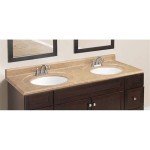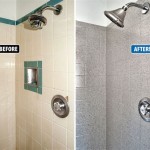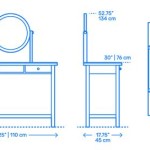How to Attach a Bathroom Sink: A Comprehensive Guide
Attaching a bathroom sink is a plumbing task that involves connecting the sink to the water supply and drainage system. While it is a moderately complex task that requires some basic plumbing skills, it can be accomplished by DIY enthusiasts with the right tools and materials.
This comprehensive guide will walk you through the essential steps of attaching a bathroom sink, ensuring a secure and functional installation. We will cover the necessary tools, materials, and step-by-step instructions, making the process accessible to both experienced and novice plumbers.
Tools and Materials
Before starting the installation, gather the following tools and materials:
- Adjustable wrench
- Pliers
- Putty knife
- Teflon tape
- Plumber's putty
- Pop-up drain assembly (if the sink does not have one)
- Faucet
- Sink
- Water supply lines
- Drain pipe
- Silicone sealant (optional)
Step-by-Step Instructions
1. Prepare the Sink and Countertop
Start by cleaning the sink and countertop thoroughly. Use a putty knife to remove any old sealant or debris from the rim of the sink and the countertop. Place the sink on the countertop and mark its outline with a pencil.
2. Install the Drain Assembly
If the sink does not have a pre-installed pop-up drain assembly, you will need to install it now. Follow the manufacturer's instructions for the specific type of drain assembly.
3. Apply Plumber's Putty
Roll out a rope of plumber's putty and place it around the rim of the drain hole in the sink. Press the putty firmly into place, creating a seal between the drain and the sink.
4. Set the Sink
Carefully lift the sink and align it with the marked outline on the countertop. Lower the sink into place and press down gently to ensure a secure fit. Use an adjustable wrench to tighten the nuts on the drain assembly.
5. Install the Faucet
Place the faucet over the holes in the sink and slide the mounting nuts onto the threads. Tighten the nuts firmly using an adjustable wrench.
6. Connect the Water Supply Lines
Attach the water supply lines to the faucet and tighten them using pliers. Wrap Teflon tape around the threads of the water supply lines for added security.
7. Connect the Drain Pipe
Connect the drain pipe to the drain assembly and tighten the connection using pliers. Ensure that the connections are securely tightened to prevent leaks.
8. Seal the Sink
To enhance the seal around the sink, apply a bead of silicone sealant along the seam between the sink and the countertop. Smooth the sealant with your finger or a damp cloth.
9. Check for Leaks
Turn on the water supply and check for any leaks at the connections. Tighten any loose connections as necessary. Once everything is leak-free, the sink is ready to use.
Tips
- Before starting the installation, turn off the water supply valves under the sink.
- Use a level to ensure that the sink is level before tightening the nuts.
- Do not overtighten the nuts as this can damage the connections.
- Use quality materials and follow the manufacturer's instructions to ensure a durable and functional installation.
- If you encounter any difficulties, do not hesitate to seek professional assistance from a licensed plumber.
Conclusion
Attaching a bathroom sink requires some technical knowledge and attention to detail. By following these step-by-step instructions and using the right tools and materials, you can successfully install a bathroom sink and enjoy a functional and aesthetically pleasing bathroom.

How To Fit A Bathroom Sink Diy Guides Victorian Plumbing

How To Install A Bathroom Sink Step By Guide

How To Install A Bathroom Vanity

Here S How Install A Bathroom Pedestal Sink

How To Install A Bathroom Sink Taskrabbit Blog

How To Attach A Bathroom Sink Countertop

How To Install A Bathroom Faucet The Home Depot

Bathroom Sink Plumbing Installation Diy Montreal

How To Replace And Install A Bathroom Sink

How To Remove And Replace A Bathroom Sink Diy
Related Posts







